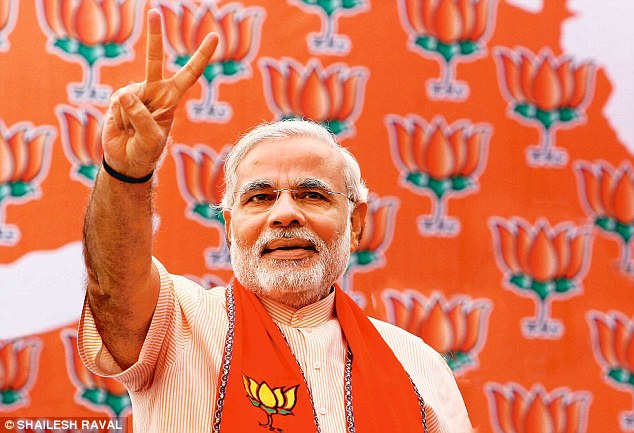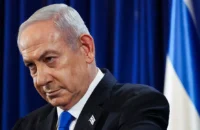Khaled Ahmed
Prime Minister Narendra Modi has won his election and now India will have to adjust to his worldview in the coming five years more completely, judiciary a little more and the minorities quite a lot. Prime Minister Imran Khan his neighbor wanted him to win so that he could readjust to India, change policy from the ground up, because Pakistan is broke. Khan wants to docket Kashmir and open free trade with India, allow India trade route to Afghanistan and Central Asia in order to secure his western border to prevent Pakistan from unraveling once again.
India will change. It will “seek its soul” to achieve recognition and dignity. The entire world is seeking this “thymos”. Fukuyama says: “Thymos is the part of the soul that craves recognition of dignity; isothymia is the demand to be respected on an equal basis with other people; while megalothymia is the desire to be recognised as superior. Modern liberal democracies promise and largely deliver a minimal degree of equal respect, embodied in individual rights, the rule of law, and the franchise.”
But the era of the liberal democracy is gone. The Muslim world or the “umma” has collapsed seeking “democracy” thinking Islam means democracy. America is seeking thymos under Trump; India seeks it under Modi. Fukuyama in his book End of History thought that Trump was a “fantastically ambitious individual whose desire for recognition had been safely channeled into a business and later an entertainment career”. Little did he realize that Trump will lead the entire American nation to a new seeking of thymos. America had suspended Modi’s visa when he was chief minister of Gujarat; today Trump seeks alliance with him and India responds by suspending its oil imports from Iran.
India and Pakistan have both changed because of social change. And both have returned to religion. If Modi represents Hindutva; Khan represents the new wave of middle class faith penetrating the Pakistan army as well. The rise of the middle class in South Asia has ignited religious fires and changed regional politics. Between 1999 and 2012, those spending between $2 and $10 per capita per day in India doubled and became a part of the middle class today forming nearly half of the Indian population.
Ex-Governor of the State Bank of Pakistan Dr Ishrat Husain in his book, Governing the Ungovernable (2018), says that between 2001 and 2013, Pakistanis spending $4 to $10 per day per person had massively joined the middle class now forming 42 percent of the population of Pakistan.
Economist Nadeemul Haq says: “Pakistan is now more urbanized with a larger middle class than India as percentage of the population. In 2007, Standard Chartered Bank analysts estimated that there were 30 to 35 million Pakistanis earning an average of $10,000 a year. Of these, about 17 million are in the upper and upper middle class”. If you think the entire world is going crazy hear this from the Brookings, Washington DC:
“Something of enormous global significance is happening almost without notice. For the first time since agriculture-based civilization began 10,000 years ago, the majority of humankind is no longer poor or vulnerable to falling into poverty. By our calculations, just over 50 percent of the world’s population, or some 3.8 billion people, live in households with enough discretionary expenditure to be considered “middle class” or “rich”.”
In Pakistan, Imran Khan must succeed in “normalizing” with India by not frontloading Kashmir in the coming negotiations with his Indian counterpart. Both states are nuclear powers and given the new “thymos” the two religions can go to the final Armageddon. Once the Indian Constitution informed the attitude of the Indian middle class, which was tolerant of secularism. This is no longer so.
In Pakistan, the Constitution still inclines the middle class to desire sharia and consequently prefer the “harder” sharia of al Qaeda and Islamic State to state ideology. For once however the Pakistan army, path-dependent so far on India despite defeats, is allowing PM Khan to change the India policy on a permanent basis. Now is the time for Prime Minister Modi to add another “victory” to his electoral triumph: get Pakistan to allow bilateral free trade including cross-border investment. Of course Imran Khan will have to play ball by delaying the “peace talks” on Kashmir as “normalization” with India proceeds.
Pakistan’s nuclear physicist Pervez Hoodbhoy once wrote in Dawn on Pakistan’s policies on Kashmir: “Pakistan tried to translate India’s losses into its gains but failed. It soon hijacked the indigenous uprising, but the excesses committed by Pakistan-based mujahideen eclipsed those of Indian security forces. The massacres of Kashmiri Pandits, targeting of civilians accused of collaborating with India, destruction of cinema houses and liquor shops, forcing of women into the veil, and revival of Shia-Sunni disputes, severely undermined the legitimacy of the Kashmiri freedom movement.”
It is time India and Pakistan put Kashmir to rest, allowing the people there – both Hindus and Muslims – to lead normal lives together as they did before Kashmir became a “dispute”.



























